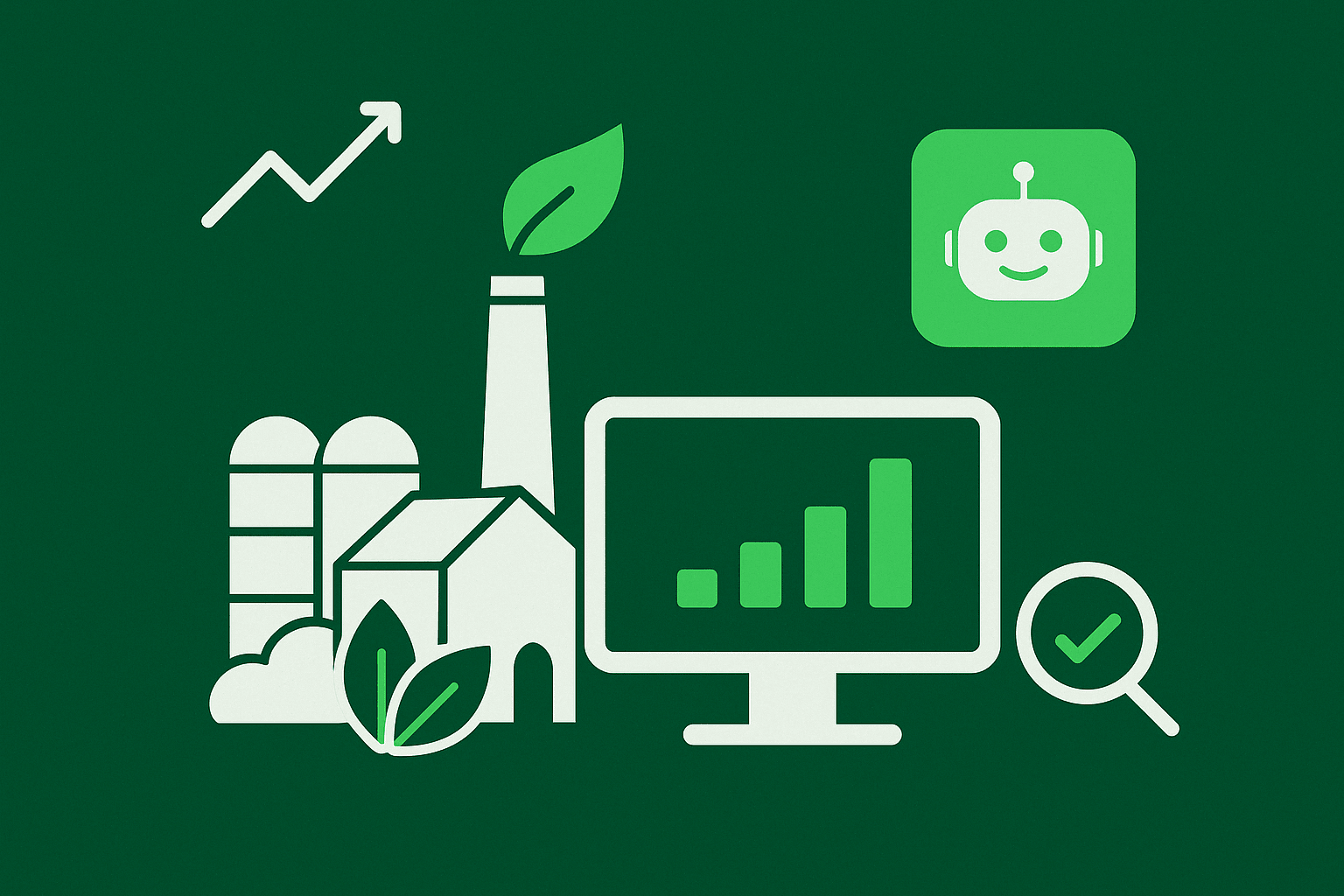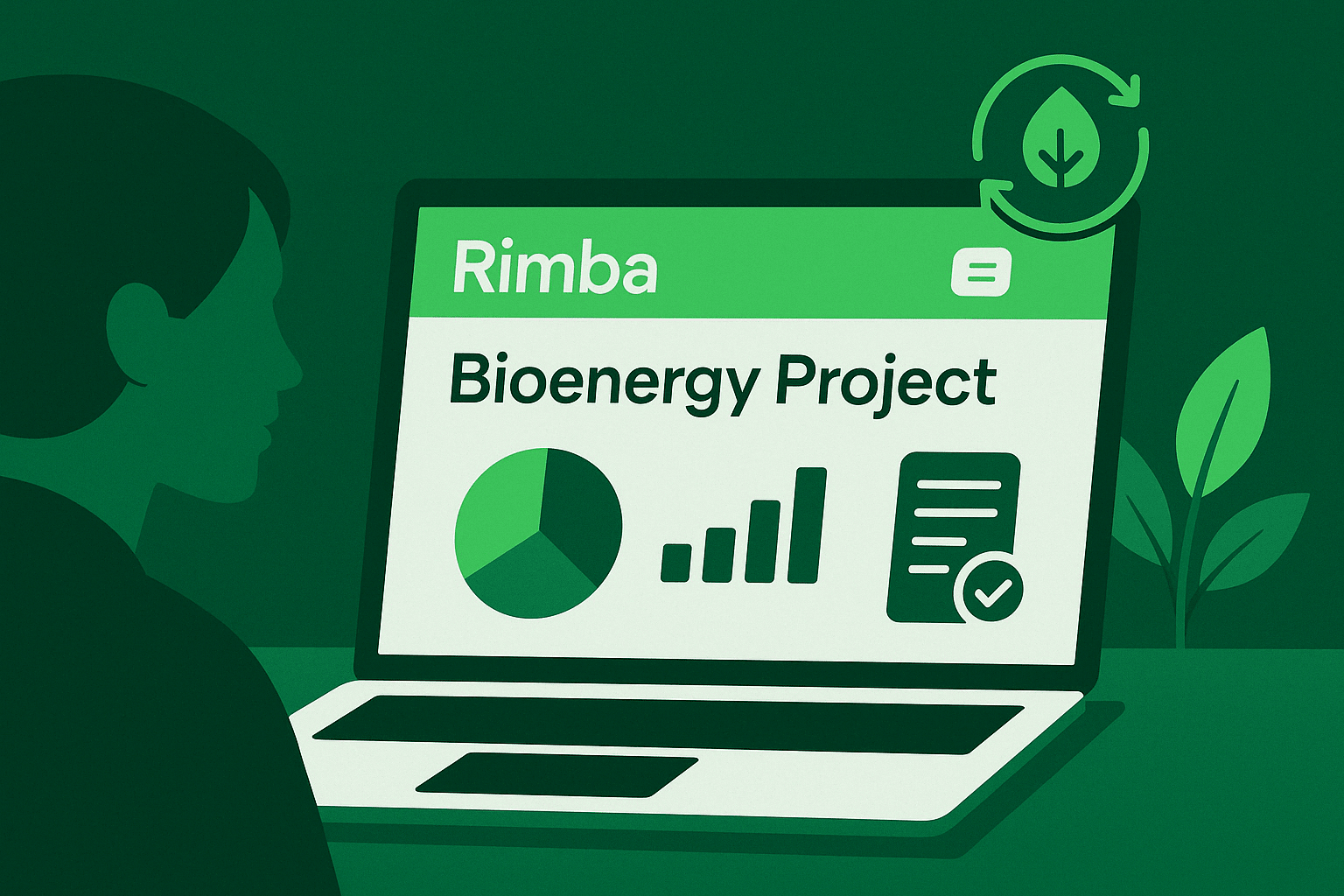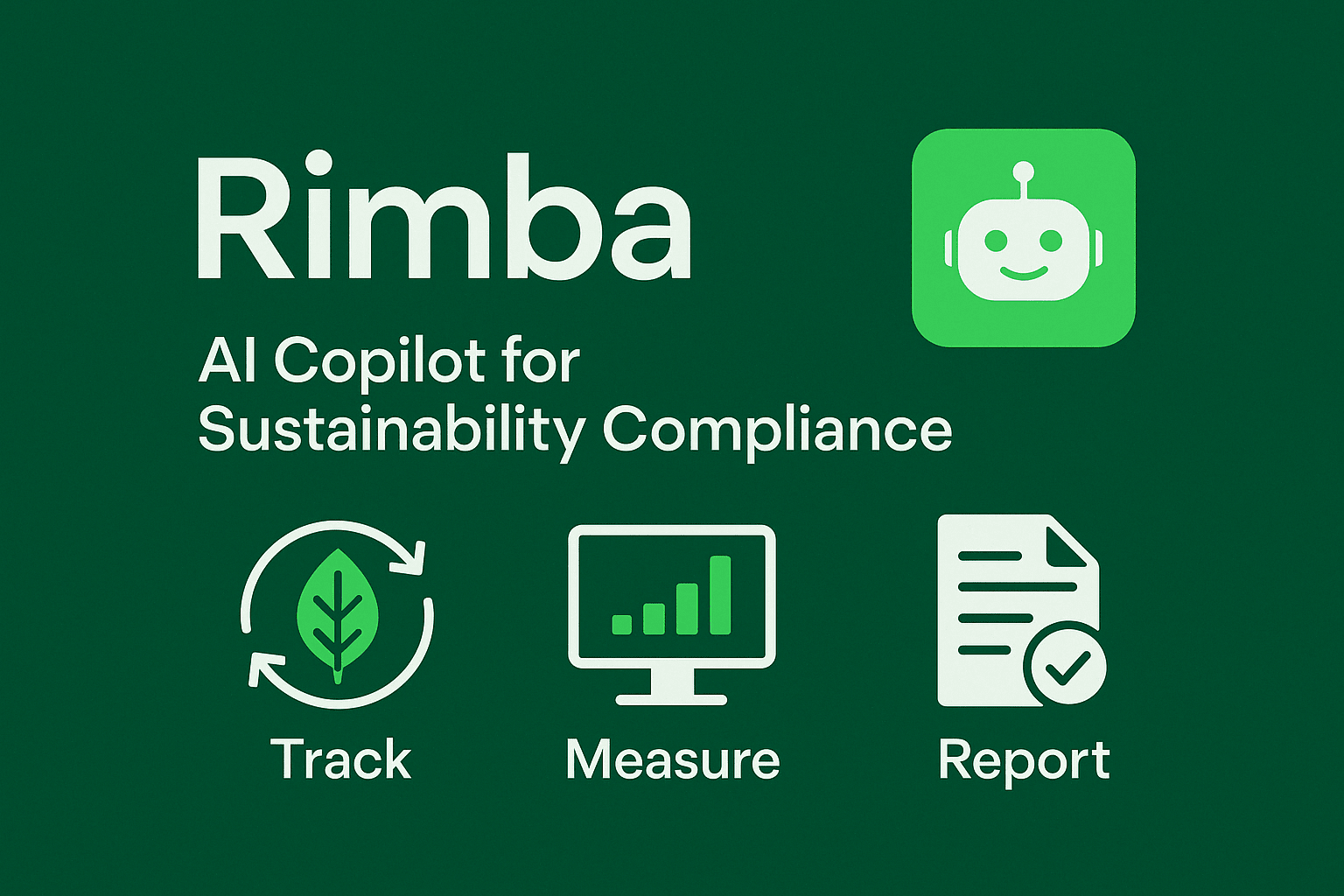Can AI Fix the Compliance Bottleneck in Biofuels? Rimba Thinks So
Founded in 2024, Rimba is a San Francisco-based startup with a mission to transform how sustainability compliance is handled in the bioenergy sector. Developed by co-founders Timothy Daniel and Akshay Sharma, Rimba was created to serve as an AI-powered copilot for compliance teams, helping them gather, analyze, and manage large volumes of complex data used in audits and reporting.
The idea behind Rimba is simple but revolutionary: automate the burdensome and error-prone compliance process using intelligent agents. Designed specifically for renewable fuel projects, Rimba helps companies meet regulatory standards like LCFS (Low Carbon Fuel Standard), RFS (Renewable Fuel Standard), and ISCC (International Sustainability and Carbon Certification). In an industry where regulations can make or break profitability, Rimba provides a competitive edge by streamlining data handling and ensuring audit-readiness.
Why Is Sustainability Compliance So Challenging?
The bioenergy industry operates within a strict framework of mandates and incentives. Compliance is not just a formality—it’s a critical driver of revenue. Carbon credits, government subsidies, and international trading eligibility all hinge on a company’s ability to produce accurate, transparent reports.
However, compliance reporting is notoriously complex. Companies must gather data from numerous sources, including:
- Unstructured documents like bills of lading and electricity invoices
- Instrument readings from flow meters and chromatographs
- Operational data points from various software and equipment
These inputs must then be transformed into precise formats required by multiple certification bodies, often manually. This process is time-consuming, error-prone, and expensive—requiring either in-house experts or costly external consultants.
How Does Rimba Automate and Improve the Process?
Rimba automates every stage of the compliance journey:
- Track: Ensures complete supply chain traceability from feedstock sourcing to fuel production.
- Measure: Simplifies carbon intensity testing and measurement processes.
- Report: Converts unstructured and structured data into standardized, audit-ready compliance reports.
The platform offers one central interface that provides visibility into how data is processed and supports credit generation. Its features include:
- Real-time Monitoring: Immediate detection of gaps or anomalies in data to prevent costly reporting errors.
- Intelligent Document Processing (IDP): Extracts and validates data from diverse formats like PDFs, spreadsheets, and images.
- Audit Preparation Tools: Maintains verified documentation trails to facilitate audits.
Ultimately, Rimba eliminates manual entry, reduces consulting fees, and helps users maintain regulatory transparency—all while boosting the speed and reliability of compliance workflows.
Who Benefits from Using Rimba?
Rimba serves a wide range of stakeholders in the bioenergy ecosystem, including:
- RNG (Renewable Natural Gas) Producers
- Feedstock Traders
- UCO (Used Cooking Oil) Supply Chain Operators
- Biofuel Manufacturers
- Compliance Officers and Auditors
These users face similar challenges: a growing volume of data, increasing regulatory complexity, and high stakes tied to compliance performance. By automating the transformation of operational data into regulatory reports, Rimba allows them to operate more efficiently and generate revenue faster.

How Has Rimba Helped Real-World Projects?
Case 1: RNG Compliance Optimization
Challenge:
Renewable Natural Gas (RNG) facilities in the U.S. produce over 300,000 data points daily. This massive volume of data, combined with unstructured documentation and manual reporting, made compliance a logistical nightmare.
Solution:
Rimba automated data extraction from invoices and instrument readings and converted this data into compliant LCFS, RFS, and ISCC reports.
Results:
- Time saved on manual reporting
- Cost savings from reduced reliance on consultants
- Fewer errors and faster credit generation
Case 2: Feedstock Traceability for Biofuel Traders
Challenge:
Feedstock traders often struggle to verify the authenticity of imported materials and keep up with rapidly evolving regulatory requirements. Paper-based records and Excel spreadsheets were inadequate for audits.
Solution:
Rimba transformed delivery notes, weight receipts, and other documents into standardized reports using AI-driven IDP, ensuring audit-ready traceability.
Results:
- Improved verification of feedstock origin
- Simplified certification across jurisdictions
- Enhanced audit readiness and regulatory transparency
Case 3: UCO Traceability and Fraud Prevention
Challenge:
The UCO supply chain faces growing concerns about authenticity, especially when imported oils are suspected of being fraudulently mixed with non-waste oils. Traceability gaps expose companies to audit failures and loss of credits.
Solution:
Rimba implemented end-to-end traceability, recognizing and flagging inconsistencies across thousands of documents and consolidating certification reports.
Results:
- Increased trust in UCO authenticity
- Streamlined data consolidation from multiple sources
- Reduced audit risks and maximized credit eligibility
How Does Rimba Work?
Rimba follows a structured, intuitive process designed to maximize efficiency and clarity:
- Streamline Your Data
Collect data from varied sources including instruments and documentation. - Transform the Inputs
Use AI to clean, categorize, and convert raw data into compliance-ready formats. - Stay Informed
Real-time analytics alert teams to gaps or inconsistencies in their data, allowing for proactive corrections. - Automate Reporting
Connect with existing tools to automatically generate reports aligned with certification bodies.
This step-by-step model removes human bottlenecks, drastically reduces the risk of non-compliance, and ensures documentation is always audit-ready.
What Sets Rimba Apart from Other Solutions?
While traditional compliance workflows rely on a patchwork of spreadsheets, consultants, and inconsistent processes, Rimba offers:
- Scalability: Handles thousands of documents and data points daily without human intervention.
- Transparency: Centralizes operations so every compliance detail is traceable.
- Multi-standard Support: Simultaneously manages reporting for LCFS, RFS, ISCC, and other global standards.
- Plug-and-Play Integration: Easily connects with existing databases, instruments, and enterprise tools.
By combining document intelligence with compliance-specific logic, Rimba does more than manage data—it transforms it into actionable insight.
What Is Rimba’s Long-Term Vision?
Rimba’s broader mission is to empower the clean energy transition by making compliance a catalyst—not a burden—for innovation and growth. As regulatory standards become more ambitious and complex, Rimba aims to become the trusted infrastructure layer that bioenergy companies rely on to unlock carbon credits, secure funding, and accelerate deployment.
In the long run, Rimba envisions an ecosystem where all stakeholders—from producers to traders to auditors—can collaborate seamlessly on a single, AI-powered platform.

Conclusion: Can Rimba Redefine Compliance in Renewable Energy?
Absolutely. In an industry that’s simultaneously booming and burdened by regulation, Rimba delivers a timely and necessary solution. By enabling teams to do more with less—less time, less manual effort, less risk—Rimba represents a paradigm shift in how bioenergy companies manage sustainability compliance.
From RNG plants to UCO importers, Rimba empowers stakeholders to meet the rising demands of transparency, traceability, and audit-readiness, all through a platform that learns, adapts, and scales with them.
For an industry built on data and driven by regulation, Rimba might just be the copilot compliance teams have been waiting for.

